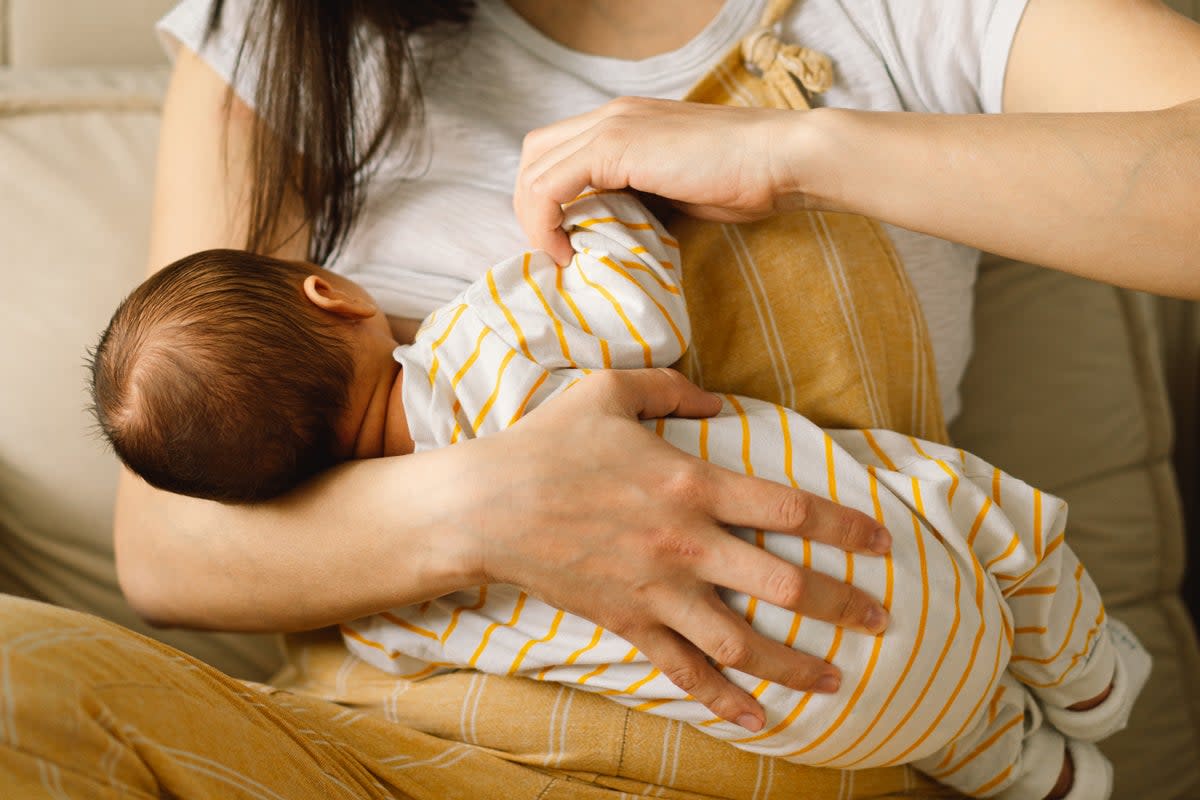Voices: The commercialisation of our breasts is happening in plain sight

A new report from the Lancet gives a scathing review of how the commercial infant milk industry is using underhand marketing techniques to exploit women and commercialise our fears and emotions about feeding our children.
The Lancet outlines the “predatory tactics” used to sell products – such as claiming commercial infant milk can help babies sleep, reduce discomfort and aid development (all claims which the Lancet calls “unsubstantiated”). The report goes on to outline how the baby milk industry regularly breaches the World Health Organisation’s breastfeeding code, and lobbies governments against legislation and regulations.
Let’s be clear, corporate power isn’t the only reason the UK has one of the lowest breastfeeding rates in the world and why only 1 per cent of UK women exclusively breastfeed at six months. There are multiple barriers to breastfeeding, including a persisting dated view that breastfeeding in public should be a discreet and graceful act, lack of available spaces in which women feel comfortable to breastfeed, minimal workplace support, low maternity pay, structural inequality (which prevents access to breastfeeding support) and projected shame onto mothers who are struggling to do it… I could go on.
Full disclosure: I couldn’t breastfeed. I tried valiantly, but it didn’t work for me. I was well supported by my local hospital, but crippling pressure on the NHS means that breastfeeding support services in general are under extreme duress. A 2017 survey by Unicef showed that more than half of infant feeding leads across the UK have seen cuts to their service.
And my experience of not breastfeeding carried equal levels of shame. On one of my first outings with my bouncing newborn, a friend’s mother asked me (before saying hello) “are you breastfeeding?” When my answer was no, she hung her head and said “what a shame”. So, shame if you do and shame if you don’t.
We know that breastfeeding is good for our babies. The evidence is overwhelming that it reduces the risk of obesity and childhood disease, improves maternal health and combats malnutrition, but it strikes me that at every angle we are set up to fail. The infant formula industry is a behemoth, spending millions of pounds each year not only on advertising, but also on discreet lobbying, fighting regulations put in place to protect women, and shaping our views about what’s wrong with our children – with their products offered up as the knight in shining armour.
The Lancet’s report argues that it’s “our collective responsibility to protect our youngest” and I’m all for that. We need everyone to get on board. From those who judge us when we do breastfeed, to those who facilitate the commercialisation of our breasts, our anxieties and our bodies by turning a blind eye to industry.
I leave you with this chilling evidence of corporate power: in one year alone the infant formula industry in the USA spent $7m (approximately £5.7m) on lobbying against breastfeeding regulation and protection measures.
In 2018, a wild (but true) story ran in the New York Times about a US government delegation at the United Nations World Health Assembly. This delegation tried to overturn a resolution which would promote and support breastfeeding. When they were challenged, they threatened the Ecuadorian government (who were planning to adopt the measure) with trade sanctions and the withdrawal of military aid.
Our boobs are big business and one that governments and industry are fighting for control over. Is it any wonder that breastfeeding rates are declining the world over, when the odds are stacked against us?
Dayna Brackley is a food policy consultant at Bremner Consulting and a masters student at the Centre for Food Policy at City University, London

 Yahoo News
Yahoo News 
